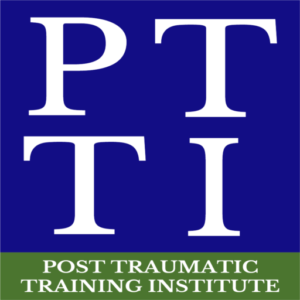
RESEARCH
The Research and Recognition Project brings together international academics, researchers and therapists to examine the current evidence of the clinical efficacy of RTM™ techniques, considering how it can be effective in facilitating change, enrichment and symptom relief.
Dr. Frank Bourke and his colleagues provide a critical appraisal of evidence-based research in the area to indicate the benefits of the approach and identify the need for an increase in randomized well-controlled clinical trials.
Remediation Of Intrusive Symptoms Of PTSD In Fewer Than Five Sessions
Gray, R., & Bourke, F. (2015). Remediation of intrusive symptoms of PTSD in fewer than five sessions: A 30- person pre-pilot study of the RTM Protocol™. Journal of Military, Veteran and Family Health, 1(2), 85-92.doi:10.3138/jmvfh.3119. This pilot study treated 30 veterans suffering with severe PTS and measured their PTS remission rate post treatment at 96% (25 of 26), along with and alleviating their PTS intrusive symptoms in under five sessions. It provided validation for funding additional, more sophisticated research.
Read the full article:
Remediation of Intrusive Symptoms of PTSD in Fewer Than Five
Evaluation Of The Reconsolidation Of Traumatic Memories Protocol
Tylee, D. S., Gray, R., Glatt, S. J., & Bourke, F. (2017). Evaluation of the reconsolidation of traumatic memories protocol for the treatment of PTSD: a randomized, wait-list controlled trial. Journal of Military, Veteran and Family Health,3(1), 21-33. doi: 10.3138/jmvfh.4120. This Wait List Designed, Random Control Trial (RCT) study, measured 90% of the 30 male veterans, PTS diagnosis free, at their two-week, six-week, and twelve- month follow-ups. Given the 90% PTS remission rate and the high suicide rate among the veteran population, the Wait List Design was ethically necessitated because our participants were high suicide risk, and often homeless. Double-blinded studies were not attempted due to the vulnerability of this client group. The research team psychometricians were blinded as to control and experimental groups providing more than reasonable confidence for additional studies.
Read the full article:
2. Evaluation of the Reconsolidation of Traumatic Memories Protocol
Reconsolidation Of Traumatic Memories For PTSD A Randomized Controlled Trial Of 74 Male Veterans
Gray, R., Budden-Potts, D., & Bourke, F. (2017). Reconsolidation of Traumatic Memories for PTSD: A randomized controlled trial of 74 male veterans. Psychotherapy Research. doi: 10.1080/10503307.2017.1408973. Over 90% of the male veterans completing treatment scored below the diagnostic threshold on the PCL-M and PSS-I. About half of those treated were followed to twelve months and retained freedom from PTSD intrusive symptoms and diagnosis.
Read the full article:
An Open-Label, Randomized Controlled Trial Of The Reconsolidation Of Traumatic Memories Protocol (RTM™) In Military Women
Gray, R. M., Budden-Potts, D., Schwall, R. J., & Bourke, F. F. (2020, November 19). An Open- Label, Randomized Controlled Trial of the Reconsolidation of Traumatic Memories Protocol (RTM™) in Military Women. Psychological Trauma: Theory, Research, Practice, and Policy. Advance onlinepublication. http://dx.doi.org/10.1037/tra0000986. 96% PTS remission of the 30 women veterans on the PCL-M and PSS-I at two weeks and all subsequent measures to one year, follow-ups. A 96% PTS remission rate was obtained for the 30 women veterans on the PCL-M and PSS-I at two weeks and all subsequent measures to one year, follow-ups.
Albuquerque Trainees PsyArxiv
Gray, R. M.; Davison, A., and Bourke, F. (2021, August 25). Reconsolidation of Traumatic Memories, The RTM Protocol™: Albuquerque trainee results. PsyArxiv. DOI 10.17605/OSF.IO/PFQG4 Retrieved from osf.io/pfqg4. Between 2018 and 2020, 18 licensed mental health professionals were certified in the Reconsolidation of Traumatic Memories (RTM™) protocol. Participants collected and reported back anonymized data on clients they treated using RTM™, including pre-post PSSI-5 (n =74) or PCL-5 (n =11) statistics for each client. Of 90 RTM-eligible clients, 85 completed RTM™ treatment. Pre- post- PSS-I-5 or PCL-5 results found that 80 (95%) scored below minimal diagnostic criteria for PTSD.
Read the full article:
Case Studies
Reconsolidation Of Traumatic Memories (RTM™) For PTSD – A Case Series
Gray, R., & Teall, B. (2016). Reconsolidation of Traumatic Memories (RTM™) for PTSD: A case 2 Richard M. Gray, Ph.D. series. Journalof Experiential Psychology, 19(4):59-69. The current case series describes four individuals previously diagnosed with PTSD who volunteered for treatment in a waitlist RCT of Reconsolidation of Traumatic Memories (RTM™). These individuals completed five 90-min sessions of RTM™. In the larger study 96% (25/26) of treated clients no longer met diagnostic criteria for PTSD at the end of treatment, with these gains maintained at 6- and 26-week posttreatment. Implications for the delivery of RTM™ and its further investigation are discussed.
Read the full article:
6. Reconsolidation of Traumatic Memories – RTM for PTSD – A Case Series
The Reconsolidation Of Traumatic Memories (RTM™) Protocol For PTSD A Case Study
Gray, R., Budden-Potts, D., & Bourke, F. (2017). The Reconsolidation of Traumatic Memories (RTM™) Protocol for PTSD: ACase Study. Journal of Experiential Psychotherapy, vol. 20(4): 47-61. This case study describes Carl, a Vietnam veteran, diagnosed with PTSD who volunteered for treatment in a 30-person waitlist RCT of the RTM Protocol™. Carl completed three 120 minute sessions of RTM™. Post-treatment measures found significant reductions in PTSD symptoms that were maintained at 2, 6, 26, and 52-weeks post-treatment. Carl was chosen as representative of Vietnam Era participants for whom RTM™ has been effective in the larger study. Carl has experienced the intrusive symptoms of PTSD for more than 40 years. He is now symptom free.
Read full article:
7. The Reconsolidation of Traumatic Memories RTM Protocol for PTSD – A Case Study
Reviews/Meta-Analyses:
Active Duty And Ex-Serving Military Personnel With Post-Traumatic Stress Disorder Treated With Psychological Therapies
Kitchiner, N.J., Lewis, C., Roberts, N. P., & Bisson, J. I. (2019). Active duty and ex-serving military personnel with post-traumatic stress disorder treated with psychological therapies: systematic review and meta-analysis, European Journal of Psychotraumatology, 10:1, 1684226, DOI: 10.1080/20008198.2019.1684226. Their scientifically formatted, meta-analysis found RTM™ to be one of only two of the treatments examined to meet their efficacy criterion for consideration as effective for treating military PTSD”.
Read full article:
Consolidation/Reconsolidation Therapies For The Prevention And Treatment Of PTSD And Re-Experiencing: A Systematic Review And Meta-Analysis
Astill Wright, L., Horstmann, L., Holmes, E. A., & Bisson, J. I. (2021). Consolidation/reconsolidation therapies for the prevention and treatment of PTSD and re- experiencing: a systematic review and meta-analysis. Translational Psychiatry, 11(1), 453. doi:10.1038/s41398-021-01570-w This Cochrane systematic review and meta-analysis assessed the efficacy of so-called memory consolidation/reconsolidation therapies in randomized controlled trials (RCTs) for prevention and treatment. Twenty-five RCTs met inclusion criteria (16 prevention and nine treatment trials). Only three protocols (hydrocortisone for PTSD prevention, Reconsolidation of Traumatic Memories (RTM™) for treatment of PTSD symptoms, and cognitive task memory interference procedure with memory reactivation (MR) for intrusive memories) were superior to control. A discussion of RTM™ is provided on Page 10.
Read full article:
Psychotherapy For Military-Related PTSD A Review Of Randomized Clinical Trials
Steenkamp, M. M., Litz, B. T., Hoge, C. W., & Marmar, C. R. (2015). Psychotherapy for Military- Related PTSD: A Review of Randomized Clinical Trials. Jama, 314(5), 489-500. https://doi.org/10.1001/jama.2015.8370. This review of military and veteran populations, trials of the first-line trauma-focused interventions stated the need for improvement in existing PTSD treatments and for development and testing of novel evidence-based treatments. It pointedly admonished the broad range of researchers using statistics, that are still widely employed, labeling PTS Treatments as “successful” where only 35% TO 45% of the clients treated no longer tested with PTS Diagnoses.
Read full article:
